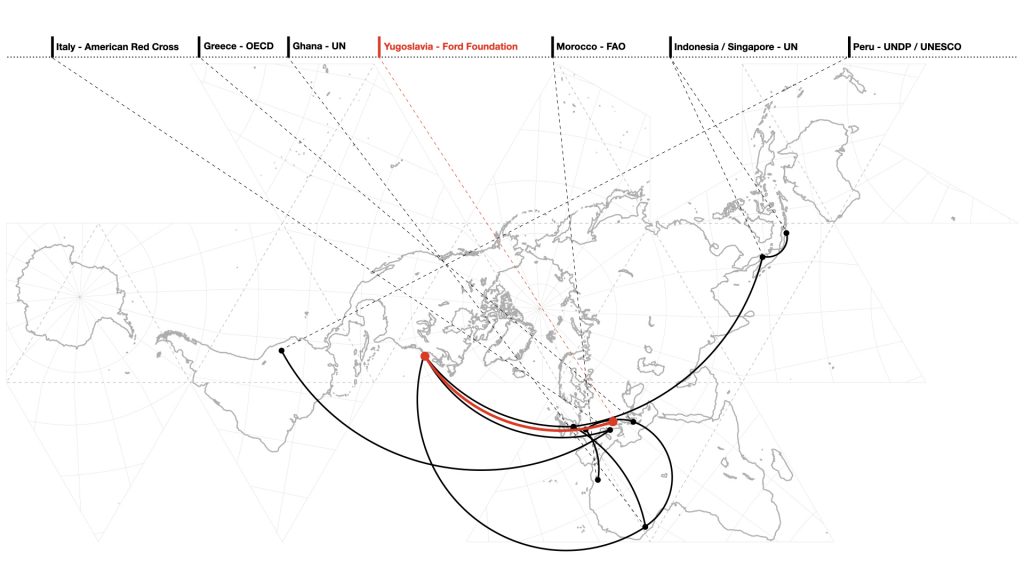Experts, Exports, and the Global Entanglements of Postwar Planning

Vladimir Kulić (Iowa State University – USA) Ford’s Architects: Ford Foundation and the Transfer of the American Urban Planning Expertise to Socialist Yugoslavia
The talk will discuss the role of the Ford Foundation, one of the key institutions of the US “soft power” during the Cold War, in the transfer of urban and regional planning expertise to Yugoslavia and the rest of socialist Eastern Europe. Between 1958 and 1970, Ford Foundation’s International Affairs Program established an outsize presence in Yugoslavia, facilitating the visits to the United States by almost two hundred prominent Yugoslav political and cultural figures. A substantial number among them were architects, some of whom studied at leading American universities and went on to establish successful careers back home. Most importantly, in the mid-1960s Ford Foundation also helped set up the so-called American-Yugoslav Project in Regional and Urban Planning Studies in collaboration with the Urban Planning Institute in Ljubljana, Slovenia, which was intended to facilitate the transfer of the new techniques of interdisciplinary quantitative analysis to Eastern and Central Europe. Additionally, co-funded by State Department and the Yugoslav federal government, the project’s most important product was the Demonstration study of the Ljubljana Region, which served as the training program for local experts. The study effectively fostered a shift in Yugoslav urbanism from the so-called blueprint planning – the design of the physical structure – toward a complex, scientific and multidisciplinary process dealing with more open-ended outcomes and multiple scenarios. The paper will discuss the motivations, contradictions, and effects of the Ford Foundation’s influence in Yugoslav architecture and urban planning, focusing especially on the American-Yugoslav Project.


